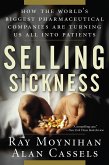The Oxford Handbook of the Social Science of Obesity
Herausgegeben von Cawley, John
The Oxford Handbook of the Social Science of Obesity
Herausgegeben von Cawley, John
- Broschiertes Buch
- Merkliste
- Auf die Merkliste
- Bewerten Bewerten
- Teilen
- Produkt teilen
- Produkterinnerung
- Produkterinnerung
There is an urgent need to better understand the causes and consequences of obesity, and to learn what works to prevent or reduce obesity. This volume accurately and conveniently summarizes the findings and insights of obesity-related research from the full range of social sciences including anthropology, economics, government, psychology, and sociology. It is an excellent resource for researchers in these areas, both bringing them up to date on the relevant research in their own discipline and allowing them to quickly and easily understand the cutting-edge research being produced in other…mehr
Andere Kunden interessierten sich auch für
![American Health Care Today And Its Providers American Health Care Today And Its Providers]() Linda HewittAmerican Health Care Today And Its Providers25,99 €
Linda HewittAmerican Health Care Today And Its Providers25,99 €![Unaffordable: American Healthcare from Johnson to Trump Unaffordable: American Healthcare from Johnson to Trump]() Jonathan EngelUnaffordable: American Healthcare from Johnson to Trump29,99 €
Jonathan EngelUnaffordable: American Healthcare from Johnson to Trump29,99 €![Harvard Business Review on Fixing Healthcare from Inside & Out Harvard Business Review on Fixing Healthcare from Inside & Out]() Harvard Business ReviewHarvard Business Review on Fixing Healthcare from Inside & Out19,99 €
Harvard Business ReviewHarvard Business Review on Fixing Healthcare from Inside & Out19,99 €![Reigniting the Human Connection Reigniting the Human Connection]() Jennifer H MieresReigniting the Human Connection25,99 €
Jennifer H MieresReigniting the Human Connection25,99 €![Selling Sickness Selling Sickness]() Ray MoynihanSelling Sickness19,99 €
Ray MoynihanSelling Sickness19,99 €![The Myths About Nutrition Science The Myths About Nutrition Science]() David LightseyThe Myths About Nutrition Science180,99 €
David LightseyThe Myths About Nutrition Science180,99 €![Pharmaceutical Industry and Public Policy in Post-reform India Pharmaceutical Industry and Public Policy in Post-reform India]() Reji K JosephPharmaceutical Industry and Public Policy in Post-reform India180,99 €
Reji K JosephPharmaceutical Industry and Public Policy in Post-reform India180,99 €-
-
-
There is an urgent need to better understand the causes and consequences of obesity, and to learn what works to prevent or reduce obesity. This volume accurately and conveniently summarizes the findings and insights of obesity-related research from the full range of social sciences including anthropology, economics, government, psychology, and sociology. It is an excellent resource for researchers in these areas, both bringing them up to date on the relevant research
in their own discipline and allowing them to quickly and easily understand the cutting-edge research being produced in other disciplines. The Oxford Handbook of the Social Science of Obesity is a critical reference for obesity researchers and is also valuable for public health officials,
policymakers, nutritionists, and medical practitioners.
The first section of the book explains how each social science discipline models human behavior (in particular, diet and physical activity), and summarizes the major research literatures on obesity in that discipline. The second section provides important practical information for researchers, including a guide to publicly available social science data on obesity and an overview of the challenges to causal inference in obesity research. The third part of the book synthesizes social science
research on specific causes and correlates of obesity, such as food advertising, food prices, and peers. The fourth section summarizes social science research on the consequences of obesity, such as lower wages, job absenteeism, and discrimination. The fifth and final section reviews the social science
literature on obesity treatment and prevention, such as food taxes, school-based interventions, and medical treatments such as anti-obesity drugs and bariatric surgery.
in their own discipline and allowing them to quickly and easily understand the cutting-edge research being produced in other disciplines. The Oxford Handbook of the Social Science of Obesity is a critical reference for obesity researchers and is also valuable for public health officials,
policymakers, nutritionists, and medical practitioners.
The first section of the book explains how each social science discipline models human behavior (in particular, diet and physical activity), and summarizes the major research literatures on obesity in that discipline. The second section provides important practical information for researchers, including a guide to publicly available social science data on obesity and an overview of the challenges to causal inference in obesity research. The third part of the book synthesizes social science
research on specific causes and correlates of obesity, such as food advertising, food prices, and peers. The fourth section summarizes social science research on the consequences of obesity, such as lower wages, job absenteeism, and discrimination. The fifth and final section reviews the social science
literature on obesity treatment and prevention, such as food taxes, school-based interventions, and medical treatments such as anti-obesity drugs and bariatric surgery.
Produktdetails
- Produktdetails
- Oxford Handbooks in Economics
- Verlag: Oxford University Press
- Seitenzahl: 912
- Erscheinungstermin: 7. Februar 2014
- Englisch
- Abmessung: 246mm x 173mm x 41mm
- Gewicht: 1472g
- ISBN-13: 9780199359974
- ISBN-10: 0199359970
- Artikelnr.: 39395667
- Oxford Handbooks in Economics
- Verlag: Oxford University Press
- Seitenzahl: 912
- Erscheinungstermin: 7. Februar 2014
- Englisch
- Abmessung: 246mm x 173mm x 41mm
- Gewicht: 1472g
- ISBN-13: 9780199359974
- ISBN-10: 0199359970
- Artikelnr.: 39395667
John Cawley is a professor in the Department of Policy Analysis and Management at Cornell University. His primary field of research is health economics, with a focus on the economic causes of obesity, the economic consequences of obesity, and economic approaches to obesity treatment and prevention. He has served on expert panels and advisory committees regarding obesity for the Institute of Medicine, Centers for Disease Control and Prevention, and other government agencies. In addition to his affiliation with Cornell, John is a Research Associate of the National Bureau of Economic Research in the Programs on Health Economics and Health Care, and he is a co-editor of the journal Economics & Human Biology. More information about the editor is available at www.johncawley.com.
* 1. Introduction: John Cawley of Cornell University
* Part 1: Disciplinary Perspectives on Obesity:
* 2. The Epidemiology of Obesity: Aviva Must and E. Whitney Evans of
Tufts University
* 3. The Demography of Obesity: Christine L. Himes of Syracuse
University
* 4. The Cliometrics of BMI and Obesity: Scott Alan Carson of
University of Texas - Permian Basin
* 5. The Anthropology of Obesity: Amanda L. Thompson and Penny
Gordon-Larsen of University of North Carolina
* 6. The Psychology of Obesity: Ashley Moskovich of Duke University,
Jeff Hunger of California State University at Fullerton, and Traci
Mann of University of Minnesota.
* 7. The Sociology of Obesity: Jeffrey Sobal of Cornell University
* 8. The Economics of Obesity: John Cawley of Cornell University
* 9. Behavioral Economics and Obesity: Julie S. Downs and George
Lowenstein of Carnegie-Mellon University
* 10. Obesity Politics and Policy: Rogan Kersh of New York University
and James Morone of Brown University
* 11. Fat Studies: Esther D. Rothblum of San Diego State University
* Part 2: Data and Methods
* 12. Publicly-Available Data Useful for Social Science Research on
Obesity: Inas Rashad Kelly of Queens College, City University of New
York
* 13. The Complex Systems Science of Obesity: Diane T. Finegood of
Simon Fraser University
* 14. Challenges for Causal Inference in Obesity Research: M.
Christopher Auld of University of Calgary and Paul Grootendorst of
University of Toronto
* Part 3: The Causes and Correlates of Diet, Physical Activity, and
Obesity
* 15. Race, Ethnicity and Obesity: Renee Walker and Ichiro Kawachi of
Harvard University
* 16. Socioeconomic Status and Obesity: Lindsay McLaren of University
of Calgary
* 17. The Nutrition Transition and Obesity: Barry M. Popkin of
University of North Carolina - Chapel Hill
* 18. Peer Effects and Obesity: Jason M. Fletcher of Yale University
* 19. Maternal Employment: Patricia M. Anderson of Dartmouth College
* 20. Depression and Obesity: Ellen Granberg of Clemson University
* 21. Food Marketing, Television and Video Games: Elizabeth A.
Vandewater of Research Triangle Institute and Ellen A. Wartella of
Northwestern University
* 22. Portion Size and the Obesity Epidemic: Tanja V.E. Kral of
University of Pennsylvania and Barbara J. Rolls of Pennsylvania State
University
* 23. Mindless Eating: Brian Wansink of Cornell University
* 24. Food Assistance and Obesity: Michele Ver Ploeg of U.S. Department
of Agriculture, Economic Research Service
* 25. Physical Activity and the Built Environment: James F. Sallis,
Marc A. Adams, and Ding Ding of San Diego State University
* 26. Food Deserts: Dianna Smith and Steven Cummins of University of
London
* 27. Food Prices, Income and Body Weight: Darius Lakdawalla of
University of Southern California and Yuhui Zheng of the National
Bureau of Economic Research
* 28. Agricultural Policy and Childhood Obesity: John Cawley of Cornell
University and Barrett Kirwan of University of Maryland
* Part 4: The Consequences of Obesity
* 29. Obesity and Medical Costs: Eric Finkelstein and Hae Kyung Yang of
Duke University / National University of Singapore
* 30. Obesity and Mortality: Neil K. Mehta of University of Michigan
and Virginia W. Chang of University of Pennsylvania
* 31. Schooling and Human Capital: Khoa Truong of Clemson University
and Roland Sturm of RAND
* 32. Labor Market Consequences: Employment, Wages, Disability, and
Absenteeism: Susan L. Averett of Lafayette College
* 33. Bias, Stigma and Discrimination: Rebecca M. Puhl of Yale
University
* 34. Medical and Social Scientific Debates over Body Weight: Abigail
C. Saguy of University of California - Los Angeles and Paul Campos of
University of Colorado
* Part 5: Social Science Insights into Prevention, Treatment, and
Policy
* 35. The Imperative of Changing Public Policy To Address Obesity:
Christina A. Roberto and Kelly D. Brownell of Yale
* 36. Economic Perspectives on Obesity Policy: Tomas J. Philipson and
Richard A. Posner of University of Chicago
* 37. Lessons for Obesity Policy from the Tobacco Wars: Frank J.
Chaloupka of University of Illinois at Chicago.
* 38. Food Taxes and Subsidies: Evidence and Policies for Obesity
Prevention: Lisa M. Powell and Jamie F. Chriqui of University of
Illinois at Chicago
* 39. School-Based Interventions: Tamara Brown of Liverpool University.
* 40. Workplace Obesity Prevention Programs: Ron Z. Goetzel of Emory
University, Niranjana Kowlessar of Thomson Reuters, Enid Chung Roemer
of Emory University, Xiaofei Pei, of Thomson Reuters, Maryam Tabrizi
of Thomson Reuters, Rivka C. Liss-Levinson of Emory University,
Daniel Samoly of Emory University and Jessica Waddell of Thomson
Reuters.
* 41. Community Interventions: Christina D. Economos and Sarah A. Sliwa
of Tufts University
* 42. Regulation of Food Advertising: Pauline M. Ippolito of Federal
Trade Commission
* 43. Unintended Consequences of Obesity Prevention Messages: Sahara
Byrne and Jeff Niederdeppe of Cornell University
* 44. Behavioral Treatment of Obesity: LaShanda Jones-Corneille,
Rebecca M. Stack and Thomas Wadden of University of Pennsylvania
* 45. Anti-Obesity Drugs and Bariatric Surgery: William Encinosa of
Agency for Healthcare Research and Quality, Dongyi Tony Du of the
Food and Drug Administration, and Didem Bernard of Agency for
Healthcare Research and Quality
* 46. Correlates of Successful Maintenance of Weight Loss: Victoria
Catenacci, Paul MacLean, Lorri Ogden, Sarit Polsky, Holly Wyatt, and
James Hill of University of Colorado
* 47. Cost Effectiveness of Anti-Obesity Interventions: Social Science
Insights Into Treatment, Prevention, and Policymaking: Larissa Roux
of University of British Columbia
* Part 1: Disciplinary Perspectives on Obesity:
* 2. The Epidemiology of Obesity: Aviva Must and E. Whitney Evans of
Tufts University
* 3. The Demography of Obesity: Christine L. Himes of Syracuse
University
* 4. The Cliometrics of BMI and Obesity: Scott Alan Carson of
University of Texas - Permian Basin
* 5. The Anthropology of Obesity: Amanda L. Thompson and Penny
Gordon-Larsen of University of North Carolina
* 6. The Psychology of Obesity: Ashley Moskovich of Duke University,
Jeff Hunger of California State University at Fullerton, and Traci
Mann of University of Minnesota.
* 7. The Sociology of Obesity: Jeffrey Sobal of Cornell University
* 8. The Economics of Obesity: John Cawley of Cornell University
* 9. Behavioral Economics and Obesity: Julie S. Downs and George
Lowenstein of Carnegie-Mellon University
* 10. Obesity Politics and Policy: Rogan Kersh of New York University
and James Morone of Brown University
* 11. Fat Studies: Esther D. Rothblum of San Diego State University
* Part 2: Data and Methods
* 12. Publicly-Available Data Useful for Social Science Research on
Obesity: Inas Rashad Kelly of Queens College, City University of New
York
* 13. The Complex Systems Science of Obesity: Diane T. Finegood of
Simon Fraser University
* 14. Challenges for Causal Inference in Obesity Research: M.
Christopher Auld of University of Calgary and Paul Grootendorst of
University of Toronto
* Part 3: The Causes and Correlates of Diet, Physical Activity, and
Obesity
* 15. Race, Ethnicity and Obesity: Renee Walker and Ichiro Kawachi of
Harvard University
* 16. Socioeconomic Status and Obesity: Lindsay McLaren of University
of Calgary
* 17. The Nutrition Transition and Obesity: Barry M. Popkin of
University of North Carolina - Chapel Hill
* 18. Peer Effects and Obesity: Jason M. Fletcher of Yale University
* 19. Maternal Employment: Patricia M. Anderson of Dartmouth College
* 20. Depression and Obesity: Ellen Granberg of Clemson University
* 21. Food Marketing, Television and Video Games: Elizabeth A.
Vandewater of Research Triangle Institute and Ellen A. Wartella of
Northwestern University
* 22. Portion Size and the Obesity Epidemic: Tanja V.E. Kral of
University of Pennsylvania and Barbara J. Rolls of Pennsylvania State
University
* 23. Mindless Eating: Brian Wansink of Cornell University
* 24. Food Assistance and Obesity: Michele Ver Ploeg of U.S. Department
of Agriculture, Economic Research Service
* 25. Physical Activity and the Built Environment: James F. Sallis,
Marc A. Adams, and Ding Ding of San Diego State University
* 26. Food Deserts: Dianna Smith and Steven Cummins of University of
London
* 27. Food Prices, Income and Body Weight: Darius Lakdawalla of
University of Southern California and Yuhui Zheng of the National
Bureau of Economic Research
* 28. Agricultural Policy and Childhood Obesity: John Cawley of Cornell
University and Barrett Kirwan of University of Maryland
* Part 4: The Consequences of Obesity
* 29. Obesity and Medical Costs: Eric Finkelstein and Hae Kyung Yang of
Duke University / National University of Singapore
* 30. Obesity and Mortality: Neil K. Mehta of University of Michigan
and Virginia W. Chang of University of Pennsylvania
* 31. Schooling and Human Capital: Khoa Truong of Clemson University
and Roland Sturm of RAND
* 32. Labor Market Consequences: Employment, Wages, Disability, and
Absenteeism: Susan L. Averett of Lafayette College
* 33. Bias, Stigma and Discrimination: Rebecca M. Puhl of Yale
University
* 34. Medical and Social Scientific Debates over Body Weight: Abigail
C. Saguy of University of California - Los Angeles and Paul Campos of
University of Colorado
* Part 5: Social Science Insights into Prevention, Treatment, and
Policy
* 35. The Imperative of Changing Public Policy To Address Obesity:
Christina A. Roberto and Kelly D. Brownell of Yale
* 36. Economic Perspectives on Obesity Policy: Tomas J. Philipson and
Richard A. Posner of University of Chicago
* 37. Lessons for Obesity Policy from the Tobacco Wars: Frank J.
Chaloupka of University of Illinois at Chicago.
* 38. Food Taxes and Subsidies: Evidence and Policies for Obesity
Prevention: Lisa M. Powell and Jamie F. Chriqui of University of
Illinois at Chicago
* 39. School-Based Interventions: Tamara Brown of Liverpool University.
* 40. Workplace Obesity Prevention Programs: Ron Z. Goetzel of Emory
University, Niranjana Kowlessar of Thomson Reuters, Enid Chung Roemer
of Emory University, Xiaofei Pei, of Thomson Reuters, Maryam Tabrizi
of Thomson Reuters, Rivka C. Liss-Levinson of Emory University,
Daniel Samoly of Emory University and Jessica Waddell of Thomson
Reuters.
* 41. Community Interventions: Christina D. Economos and Sarah A. Sliwa
of Tufts University
* 42. Regulation of Food Advertising: Pauline M. Ippolito of Federal
Trade Commission
* 43. Unintended Consequences of Obesity Prevention Messages: Sahara
Byrne and Jeff Niederdeppe of Cornell University
* 44. Behavioral Treatment of Obesity: LaShanda Jones-Corneille,
Rebecca M. Stack and Thomas Wadden of University of Pennsylvania
* 45. Anti-Obesity Drugs and Bariatric Surgery: William Encinosa of
Agency for Healthcare Research and Quality, Dongyi Tony Du of the
Food and Drug Administration, and Didem Bernard of Agency for
Healthcare Research and Quality
* 46. Correlates of Successful Maintenance of Weight Loss: Victoria
Catenacci, Paul MacLean, Lorri Ogden, Sarit Polsky, Holly Wyatt, and
James Hill of University of Colorado
* 47. Cost Effectiveness of Anti-Obesity Interventions: Social Science
Insights Into Treatment, Prevention, and Policymaking: Larissa Roux
of University of British Columbia
* 1. Introduction: John Cawley of Cornell University
* Part 1: Disciplinary Perspectives on Obesity:
* 2. The Epidemiology of Obesity: Aviva Must and E. Whitney Evans of
Tufts University
* 3. The Demography of Obesity: Christine L. Himes of Syracuse
University
* 4. The Cliometrics of BMI and Obesity: Scott Alan Carson of
University of Texas - Permian Basin
* 5. The Anthropology of Obesity: Amanda L. Thompson and Penny
Gordon-Larsen of University of North Carolina
* 6. The Psychology of Obesity: Ashley Moskovich of Duke University,
Jeff Hunger of California State University at Fullerton, and Traci
Mann of University of Minnesota.
* 7. The Sociology of Obesity: Jeffrey Sobal of Cornell University
* 8. The Economics of Obesity: John Cawley of Cornell University
* 9. Behavioral Economics and Obesity: Julie S. Downs and George
Lowenstein of Carnegie-Mellon University
* 10. Obesity Politics and Policy: Rogan Kersh of New York University
and James Morone of Brown University
* 11. Fat Studies: Esther D. Rothblum of San Diego State University
* Part 2: Data and Methods
* 12. Publicly-Available Data Useful for Social Science Research on
Obesity: Inas Rashad Kelly of Queens College, City University of New
York
* 13. The Complex Systems Science of Obesity: Diane T. Finegood of
Simon Fraser University
* 14. Challenges for Causal Inference in Obesity Research: M.
Christopher Auld of University of Calgary and Paul Grootendorst of
University of Toronto
* Part 3: The Causes and Correlates of Diet, Physical Activity, and
Obesity
* 15. Race, Ethnicity and Obesity: Renee Walker and Ichiro Kawachi of
Harvard University
* 16. Socioeconomic Status and Obesity: Lindsay McLaren of University
of Calgary
* 17. The Nutrition Transition and Obesity: Barry M. Popkin of
University of North Carolina - Chapel Hill
* 18. Peer Effects and Obesity: Jason M. Fletcher of Yale University
* 19. Maternal Employment: Patricia M. Anderson of Dartmouth College
* 20. Depression and Obesity: Ellen Granberg of Clemson University
* 21. Food Marketing, Television and Video Games: Elizabeth A.
Vandewater of Research Triangle Institute and Ellen A. Wartella of
Northwestern University
* 22. Portion Size and the Obesity Epidemic: Tanja V.E. Kral of
University of Pennsylvania and Barbara J. Rolls of Pennsylvania State
University
* 23. Mindless Eating: Brian Wansink of Cornell University
* 24. Food Assistance and Obesity: Michele Ver Ploeg of U.S. Department
of Agriculture, Economic Research Service
* 25. Physical Activity and the Built Environment: James F. Sallis,
Marc A. Adams, and Ding Ding of San Diego State University
* 26. Food Deserts: Dianna Smith and Steven Cummins of University of
London
* 27. Food Prices, Income and Body Weight: Darius Lakdawalla of
University of Southern California and Yuhui Zheng of the National
Bureau of Economic Research
* 28. Agricultural Policy and Childhood Obesity: John Cawley of Cornell
University and Barrett Kirwan of University of Maryland
* Part 4: The Consequences of Obesity
* 29. Obesity and Medical Costs: Eric Finkelstein and Hae Kyung Yang of
Duke University / National University of Singapore
* 30. Obesity and Mortality: Neil K. Mehta of University of Michigan
and Virginia W. Chang of University of Pennsylvania
* 31. Schooling and Human Capital: Khoa Truong of Clemson University
and Roland Sturm of RAND
* 32. Labor Market Consequences: Employment, Wages, Disability, and
Absenteeism: Susan L. Averett of Lafayette College
* 33. Bias, Stigma and Discrimination: Rebecca M. Puhl of Yale
University
* 34. Medical and Social Scientific Debates over Body Weight: Abigail
C. Saguy of University of California - Los Angeles and Paul Campos of
University of Colorado
* Part 5: Social Science Insights into Prevention, Treatment, and
Policy
* 35. The Imperative of Changing Public Policy To Address Obesity:
Christina A. Roberto and Kelly D. Brownell of Yale
* 36. Economic Perspectives on Obesity Policy: Tomas J. Philipson and
Richard A. Posner of University of Chicago
* 37. Lessons for Obesity Policy from the Tobacco Wars: Frank J.
Chaloupka of University of Illinois at Chicago.
* 38. Food Taxes and Subsidies: Evidence and Policies for Obesity
Prevention: Lisa M. Powell and Jamie F. Chriqui of University of
Illinois at Chicago
* 39. School-Based Interventions: Tamara Brown of Liverpool University.
* 40. Workplace Obesity Prevention Programs: Ron Z. Goetzel of Emory
University, Niranjana Kowlessar of Thomson Reuters, Enid Chung Roemer
of Emory University, Xiaofei Pei, of Thomson Reuters, Maryam Tabrizi
of Thomson Reuters, Rivka C. Liss-Levinson of Emory University,
Daniel Samoly of Emory University and Jessica Waddell of Thomson
Reuters.
* 41. Community Interventions: Christina D. Economos and Sarah A. Sliwa
of Tufts University
* 42. Regulation of Food Advertising: Pauline M. Ippolito of Federal
Trade Commission
* 43. Unintended Consequences of Obesity Prevention Messages: Sahara
Byrne and Jeff Niederdeppe of Cornell University
* 44. Behavioral Treatment of Obesity: LaShanda Jones-Corneille,
Rebecca M. Stack and Thomas Wadden of University of Pennsylvania
* 45. Anti-Obesity Drugs and Bariatric Surgery: William Encinosa of
Agency for Healthcare Research and Quality, Dongyi Tony Du of the
Food and Drug Administration, and Didem Bernard of Agency for
Healthcare Research and Quality
* 46. Correlates of Successful Maintenance of Weight Loss: Victoria
Catenacci, Paul MacLean, Lorri Ogden, Sarit Polsky, Holly Wyatt, and
James Hill of University of Colorado
* 47. Cost Effectiveness of Anti-Obesity Interventions: Social Science
Insights Into Treatment, Prevention, and Policymaking: Larissa Roux
of University of British Columbia
* Part 1: Disciplinary Perspectives on Obesity:
* 2. The Epidemiology of Obesity: Aviva Must and E. Whitney Evans of
Tufts University
* 3. The Demography of Obesity: Christine L. Himes of Syracuse
University
* 4. The Cliometrics of BMI and Obesity: Scott Alan Carson of
University of Texas - Permian Basin
* 5. The Anthropology of Obesity: Amanda L. Thompson and Penny
Gordon-Larsen of University of North Carolina
* 6. The Psychology of Obesity: Ashley Moskovich of Duke University,
Jeff Hunger of California State University at Fullerton, and Traci
Mann of University of Minnesota.
* 7. The Sociology of Obesity: Jeffrey Sobal of Cornell University
* 8. The Economics of Obesity: John Cawley of Cornell University
* 9. Behavioral Economics and Obesity: Julie S. Downs and George
Lowenstein of Carnegie-Mellon University
* 10. Obesity Politics and Policy: Rogan Kersh of New York University
and James Morone of Brown University
* 11. Fat Studies: Esther D. Rothblum of San Diego State University
* Part 2: Data and Methods
* 12. Publicly-Available Data Useful for Social Science Research on
Obesity: Inas Rashad Kelly of Queens College, City University of New
York
* 13. The Complex Systems Science of Obesity: Diane T. Finegood of
Simon Fraser University
* 14. Challenges for Causal Inference in Obesity Research: M.
Christopher Auld of University of Calgary and Paul Grootendorst of
University of Toronto
* Part 3: The Causes and Correlates of Diet, Physical Activity, and
Obesity
* 15. Race, Ethnicity and Obesity: Renee Walker and Ichiro Kawachi of
Harvard University
* 16. Socioeconomic Status and Obesity: Lindsay McLaren of University
of Calgary
* 17. The Nutrition Transition and Obesity: Barry M. Popkin of
University of North Carolina - Chapel Hill
* 18. Peer Effects and Obesity: Jason M. Fletcher of Yale University
* 19. Maternal Employment: Patricia M. Anderson of Dartmouth College
* 20. Depression and Obesity: Ellen Granberg of Clemson University
* 21. Food Marketing, Television and Video Games: Elizabeth A.
Vandewater of Research Triangle Institute and Ellen A. Wartella of
Northwestern University
* 22. Portion Size and the Obesity Epidemic: Tanja V.E. Kral of
University of Pennsylvania and Barbara J. Rolls of Pennsylvania State
University
* 23. Mindless Eating: Brian Wansink of Cornell University
* 24. Food Assistance and Obesity: Michele Ver Ploeg of U.S. Department
of Agriculture, Economic Research Service
* 25. Physical Activity and the Built Environment: James F. Sallis,
Marc A. Adams, and Ding Ding of San Diego State University
* 26. Food Deserts: Dianna Smith and Steven Cummins of University of
London
* 27. Food Prices, Income and Body Weight: Darius Lakdawalla of
University of Southern California and Yuhui Zheng of the National
Bureau of Economic Research
* 28. Agricultural Policy and Childhood Obesity: John Cawley of Cornell
University and Barrett Kirwan of University of Maryland
* Part 4: The Consequences of Obesity
* 29. Obesity and Medical Costs: Eric Finkelstein and Hae Kyung Yang of
Duke University / National University of Singapore
* 30. Obesity and Mortality: Neil K. Mehta of University of Michigan
and Virginia W. Chang of University of Pennsylvania
* 31. Schooling and Human Capital: Khoa Truong of Clemson University
and Roland Sturm of RAND
* 32. Labor Market Consequences: Employment, Wages, Disability, and
Absenteeism: Susan L. Averett of Lafayette College
* 33. Bias, Stigma and Discrimination: Rebecca M. Puhl of Yale
University
* 34. Medical and Social Scientific Debates over Body Weight: Abigail
C. Saguy of University of California - Los Angeles and Paul Campos of
University of Colorado
* Part 5: Social Science Insights into Prevention, Treatment, and
Policy
* 35. The Imperative of Changing Public Policy To Address Obesity:
Christina A. Roberto and Kelly D. Brownell of Yale
* 36. Economic Perspectives on Obesity Policy: Tomas J. Philipson and
Richard A. Posner of University of Chicago
* 37. Lessons for Obesity Policy from the Tobacco Wars: Frank J.
Chaloupka of University of Illinois at Chicago.
* 38. Food Taxes and Subsidies: Evidence and Policies for Obesity
Prevention: Lisa M. Powell and Jamie F. Chriqui of University of
Illinois at Chicago
* 39. School-Based Interventions: Tamara Brown of Liverpool University.
* 40. Workplace Obesity Prevention Programs: Ron Z. Goetzel of Emory
University, Niranjana Kowlessar of Thomson Reuters, Enid Chung Roemer
of Emory University, Xiaofei Pei, of Thomson Reuters, Maryam Tabrizi
of Thomson Reuters, Rivka C. Liss-Levinson of Emory University,
Daniel Samoly of Emory University and Jessica Waddell of Thomson
Reuters.
* 41. Community Interventions: Christina D. Economos and Sarah A. Sliwa
of Tufts University
* 42. Regulation of Food Advertising: Pauline M. Ippolito of Federal
Trade Commission
* 43. Unintended Consequences of Obesity Prevention Messages: Sahara
Byrne and Jeff Niederdeppe of Cornell University
* 44. Behavioral Treatment of Obesity: LaShanda Jones-Corneille,
Rebecca M. Stack and Thomas Wadden of University of Pennsylvania
* 45. Anti-Obesity Drugs and Bariatric Surgery: William Encinosa of
Agency for Healthcare Research and Quality, Dongyi Tony Du of the
Food and Drug Administration, and Didem Bernard of Agency for
Healthcare Research and Quality
* 46. Correlates of Successful Maintenance of Weight Loss: Victoria
Catenacci, Paul MacLean, Lorri Ogden, Sarit Polsky, Holly Wyatt, and
James Hill of University of Colorado
* 47. Cost Effectiveness of Anti-Obesity Interventions: Social Science
Insights Into Treatment, Prevention, and Policymaking: Larissa Roux
of University of British Columbia








